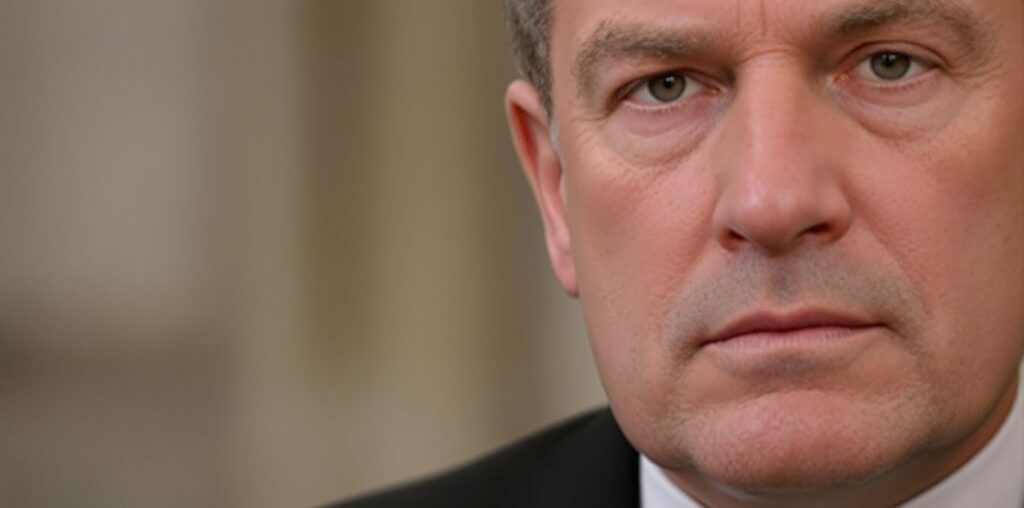Paul Mackenzie, a controversial religious figure in Kenya, has become infamous for his role in the Shakahola cult scandal. His life story is marked by early influences, the rise of his church, and the tragic events that have unfolded under his leadership. This biography explores his background, the growth of Good News International Ministries, and the serious legal issues he faces today.
- Paul Mackenzie was born in 1973 in Kwale County, Kenya, and grew up in a strict evangelical Christian family.
- He founded Good News International Ministries in 2003, which gained a large following but also drew criticism for its extreme teachings.
- Mackenzie has faced multiple legal challenges, including accusations of radicalization and inciting followers to starve themselves.
- The Shakahola cult scandal revealed mass graves and raised serious concerns about religious exploitation in Kenya.
- Public and government reactions have led to calls for stricter regulations on religious organizations in the country.
Justice Aggrey Muchelule Biography: Career, Controversies, and Legacy in Kenya’s Judiciary
Early Life and Background of Paul Mackenzie

Childhood and Family Influences
Paul Mackenzie was born in 1973 in Kwale County, located on the coast of Kenya. He grew up in a family of ten, with his father working as a shop manager and his mother as a housewife. His upbringing was deeply rooted in evangelical Christianity. Mackenzie was known to be a good boy who enjoyed attending church, singing in the choir, and even giving guest sermons as a child. However, he had a temper; at the age of sixteen, he got into a fight during a game and became violent.
Education and Early Career
After finishing secondary school, Mackenzie took on various jobs, including street hawking in Mombasa and driving a taxi in Malindi. During this time, he attended a Baptist church where he began to gain popularity for his sermons. In 2003, he took a significant step by founding Good News International Ministries in a follower’s home. His early church was reminiscent of the one he grew up in, focusing on careful Bible reading.
Initial Religious Involvement
Mackenzie’s initial teachings were similar to traditional evangelical beliefs, but over time, they became more extreme. He began to claim that hospitals and schools were demonic, stating that even Jesus did not attend school. His ability to predict events, such as the COVID-19 pandemic, further solidified his influence among followers. Mackenzie’s journey from a churchgoer to a controversial pastor reflects a complex evolution influenced by his early life experiences.
The Rise of Good News International Ministries
Founding of the Church
Good News International Ministries (GNIM) was established in 2003 by Paul Nthenge Mackenzie and his first wife. It began as a small church but quickly grew in size and influence. Mackenzie claimed he could communicate directly with God, which attracted many followers.
Growth and Expansion
The church’s growth was fueled by several factors:
- Charismatic Leadership: Mackenzie’s strong personality and claims of divine communication drew people in.
- Community Engagement: The church provided a sense of belonging and community for its members.
- Financial Contributions: Many followers sold their properties and donated money to the church, allowing it to expand its reach.
Controversial Teachings
GNIM is known for its controversial beliefs, which include:
- Anti-Western Sentiment: Mackenzie taught that Western influences, such as education and healthcare, were harmful.
- End Times Focus: The church emphasized teachings about the end of the world, encouraging followers to prepare for what they believed was imminent.
- Radical Practices: Some members were instructed to engage in extreme behaviors, including fasting to the point of starvation, which led to tragic outcomes.
The church was officially deregistered by the Kenyan government in May 2023 as part of a crackdown on harmful religious organizations.
Legal Troubles and Accusations
Initial Legal Challenges
Paul Mackenzie has faced numerous legal issues over the years. His first major legal troubles began in 2017 when he and his second wife were charged with promoting radicalization. Although they were later declared innocent, this marked the start of a series of accusations against him. In 2018, he was criticized for denying children access to healthcare and education, leading to the rescue of 93 children from his church by government authorities.
Charges of Radicalization
In 2023, Mackenzie was arrested again, this time facing serious charges including the manslaughter of 230 adults and the murders of 191 children. These allegations have shocked the community and raised questions about his teachings and practices. His legal troubles have drawn attention to the potential dangers of radical religious movements in Kenya.
Recent Trials and Hearings
Mackenzie has been held in custody for extended periods without formal charges, which has raised concerns among human rights groups. As of January 2024, he was still awaiting trial, having been in custody for over 117 days. The court has ordered psychological evaluations for him and his co-defendants before they can enter pleas. This situation highlights ongoing issues regarding the treatment of accused individuals in the Kenyan legal system.
The Shakahola Cult Scandal
Discovery of Mass Graves
In 2023, a shocking discovery was made in Shakahola Forest, where authorities found numerous mass graves linked to Paul Mackenzie’s cult. The death toll has risen dramatically, with reports indicating that over 400 bodies have been exhumed. This tragic event has raised serious questions about the safety and practices of religious groups in Kenya.
Government and Public Reactions
The Kenyan government and the public have reacted strongly to the Shakahola scandal. Key responses include:
- Increased scrutiny of religious organizations to prevent similar tragedies.
- Calls for stricter regulations on cults and religious groups.
- Public outcry demanding justice for the victims and their families.
Impact on Kenyan Society
The Shakahola scandal has had a profound impact on Kenyan society, leading to:
- Heightened awareness about the dangers of cults.
- Discussions about mental health and the influence of charismatic leaders.
- A push for reforms in how religious organizations are monitored and regulated.
This scandal has not only shocked the nation but has also sparked a broader conversation about faith, safety, and accountability in religious practices.
Influences and Controversial Teachings

Connection to A Voice in the Desert
Paul Mackenzie has been linked to the group known as A Voice in the Desert, which is known for its extreme interpretations of Christianity. This connection has raised concerns about the radicalization of his followers. Many believe that his teachings encourage dangerous behaviors, including neglecting education and healthcare.
Teachings on Education and Medicine
Mackenzie has openly criticized formal education and medical treatment, promoting the idea that they are against biblical teachings. His followers have been encouraged to:
- Withdraw children from schools.
- Reject medical assistance, believing that faith alone can heal.
- Follow his directives without question, often leading to tragic outcomes.
Claims of Prophetic Abilities
Mackenzie has claimed to possess prophetic abilities, asserting that he receives direct messages from God. This has led many of his followers to:
- Trust his guidance over traditional authorities.
- Believe in his predictions about the end times.
- Participate in extreme fasting and other practices to demonstrate their faith.
These teachings have not only influenced his followers but have also sparked significant public debate about the role of religious leaders in society.
Media and Public Perception
Role of Times TV
Times TV has played a significant role in covering the Shakahola cult scandal. Their reports have brought attention to the shocking events surrounding Paul Mackenzie and his church. The media’s focus has helped raise awareness about the dangers of cults in Kenya.
Public Criticism and Support
The public’s reaction to Paul Mackenzie has been mixed. Some people criticize him for his controversial teachings and the tragic outcomes linked to his ministry. Others support him, believing in his message and the community he has built. Key points of public sentiment include:
- Outrage over the mass graves discovered.
- Support from loyal followers who defend his teachings.
- Calls for stricter regulations on religious organizations.
Media Coverage of the Scandal
The media coverage of the Shakahola scandal has been extensive, with various outlets reporting on the developments. This coverage has included:
- Investigative reports revealing the extent of the cult’s activities.
- Interviews with former members and families affected by the cult.
- Government responses and actions taken against the church.
Overall, the media’s role in this scandal has been crucial in shaping public perception and understanding of the events surrounding Paul Mackenzie and his ministry.
The Aftermath and Ongoing Investigations
Current Legal Status
As the investigations continue, the legal situation surrounding Paul Mackenzie and his followers remains complex. Initially, Mackenzie faced numerous charges, but a High Court hearing in May 2024 ordered the prosecutors to reduce the number of charges from 191 to 12. This decision aimed to streamline the process and ensure a fair trial.
Governmental Actions and Reforms
In response to the Shakahola scandal, the Kenyan government has taken several significant steps:
- Deregistration of Good News International Ministries: The church was officially deregistered on May 19, 2023, as part of a broader crackdown on questionable religious organizations.
- Formation of a Commission of Inquiry: President William Ruto established a commission to investigate the deaths and the practices of cults in the country.
- Increased Regulation of Religious Organizations: The government is considering tighter regulations for all religious institutions to prevent similar incidents in the future.
Future Implications for Religious Organizations
The Shakahola incident has raised serious concerns about the safety and oversight of religious groups in Kenya. Some potential implications include:
- Stricter Licensing Requirements: Future religious organizations may face more rigorous checks before being allowed to operate.
- Mandatory Reporting of Activities: Churches might be required to report their activities and membership numbers to authorities regularly.
- Public Awareness Campaigns: The government may initiate campaigns to educate the public about the signs of cult behavior and how to seek help.
The ongoing investigations and the government’s response will likely shape the future landscape of religious practices in Kenya.
Conclusion
The story of Paul Mackenzie serves as a stark reminder of the dangers that can arise when faith is twisted for harmful purposes. As his trial unfolds, many are left grappling with the tragic loss of life and the exploitation of vulnerable individuals seeking hope and healing. The shocking revelations from the Shakahola cult scandal highlight the urgent need for better oversight of religious groups in Kenya. With the rise of similar figures taking advantage of people’s desperation, it is crucial for society to remain vigilant and protect those who are most at risk. The legacy of Mackenzie should inspire a call for reform, ensuring that such tragedies do not happen again.
Frequently Asked Questions – FAQs
Who is Paul Mackenzie?
Paul Mackenzie is a pastor from Kenya known for leading the Good News International Ministries and being involved in the Shakahola cult scandal.
What are the main accusations against Paul Mackenzie?
He is accused of encouraging his followers to starve themselves to meet Jesus, leading to many deaths.
What happened in the Shakahola cult scandal?
Authorities discovered mass graves in Shakahola, revealing that many followers had died due to starvation and other causes.
How did Mackenzie rise to fame?
Mackenzie started his church in 2003 and gained followers by delivering sermons that appealed to people’s beliefs.
What are some of Mackenzie’s controversial teachings?
He taught that hospitals and schools were evil and discouraged his followers from seeking medical help or education.
What is the current status of Paul Mackenzie’s legal troubles?
Mackenzie is currently facing trials related to the deaths of his followers and other criminal charges.



